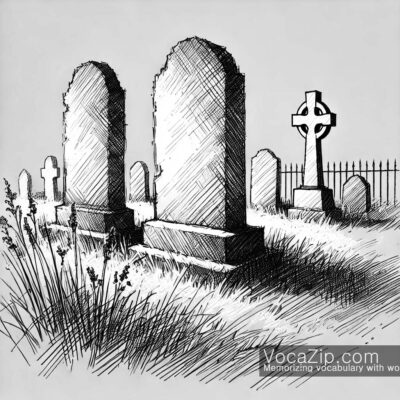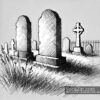deceased meaning
deceased :
dead, no longer living
adjective
▪ The deceased person was honored at the ceremony.
▪ The dead person was honored at the ceremony.
▪ They found the deceased man in the park.
▪ They found the dead man in the park.
paraphrasing
▪ late – dead
▪ departed – dead
▪ passed – dead
▪ gone – dead

deceased :
a person who has died
noun
▪ The deceased was a well-known artist.
▪ The person who died was a well-known artist.
▪ The family of the deceased gathered for the funeral.
▪ The family of the person who died gathered for the funeral.
paraphrasing
▪ dead – a person who has died
▪ departed – a person who has died
▪ late – a person who has died
▪ gone – a person who has died
Pronunciation
deceased [dɪˈsiːst]
The stress is on 'ceased' and sounds like 'di-seest'.
Common phrases and grammar about deceased
deceased - Common meaning
adjective
dead, no longer living
noun
a person who has died
Part of Speech Changes for "deceased"
▪ decease (verb) – to die
▪ decease (noun) – death
Common Expressions with "deceased"
▪ deceased person – a dead person
▪ deceased estate – property of a dead person
▪ deceased family member – a dead family member
▪ deceased loved one – a dead loved one
Important examples of deceased in TOEIC
Vocabulary examples from the TOEIC test
In TOEIC vocabulary questions, deceased is often used in formal contexts to refer to someone who has died.
Example of a confusing word: diseased (having a disease)
Grammar examples from the TOEIC test
Deceased is used as both an adjective and a noun, often appearing in questions to distinguish between the two.
deceased
Idioms and fixed expressions in TOEIC
deceased person
'dead person', used in legal or formal documents.
rest in peace
means 'to be at peace after death', often used as a respectful phrase for the deceased.
Differences between similar words and deceased
deceased
,
dead
differences
Deceased is more formal and often used in official contexts, while dead is more commonly used in everyday language.
Words with the same origin as deceased
The origin of deceased
deceased comes from the Latin 'decessus', meaning 'departure' or 'death'.
Word structure
It has the prefix de (away), root cess (go), and suffix ed (adjective), so deceased means 'gone away'.
Words with the same origin
The root of deceased is cess (go). Words with the same root include access (entry), process (to go forward), recess (a break).
Please select an image in the quiz
Previous post and next post







